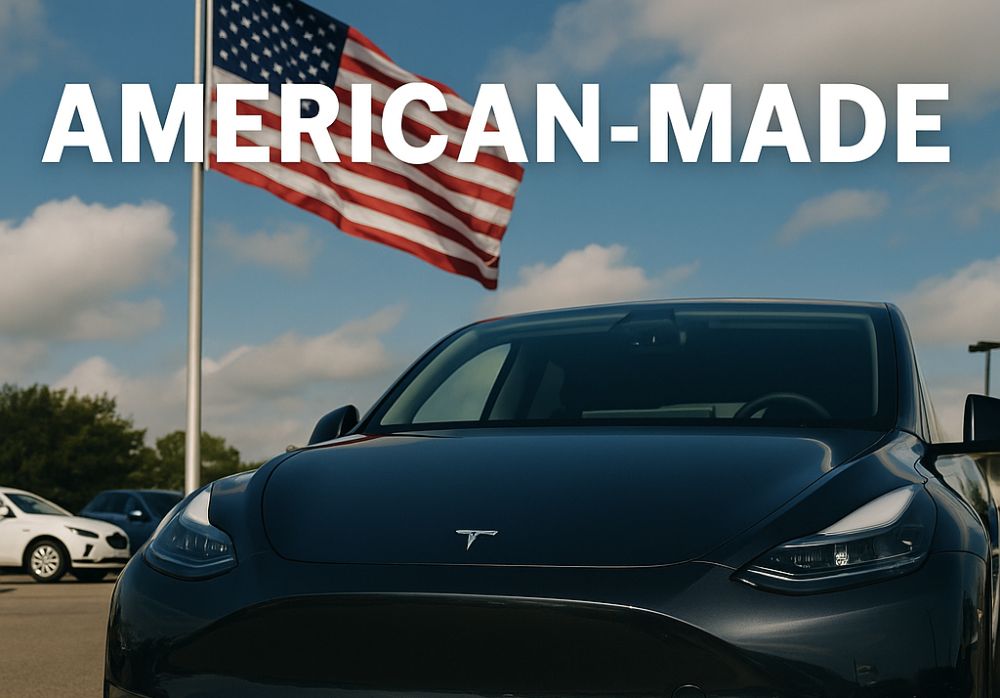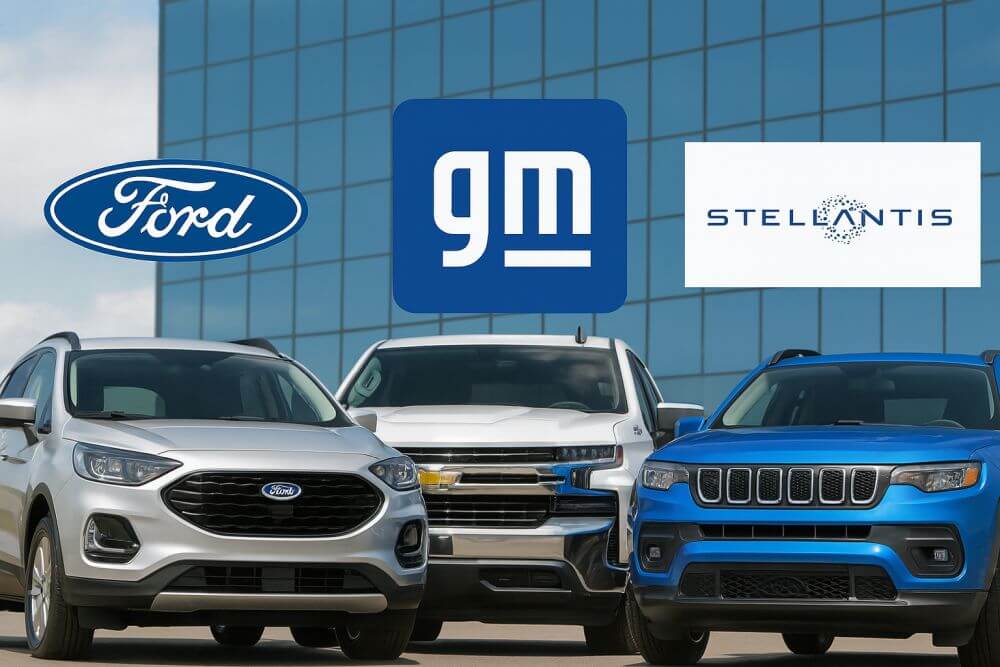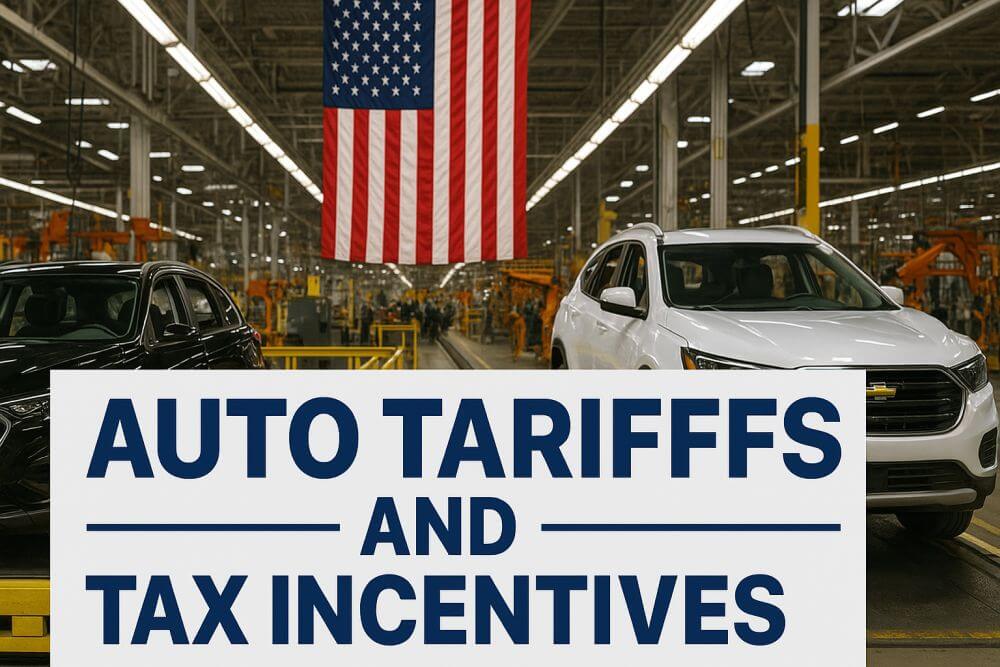Tesla has made headlines again by dominating the 2025 Cars.com American-Made Index. The brand’s Model 3, Model Y, Model S, and Model X claimed the top four spots, solidifying Tesla’s reputation as a truly American automaker. In fifth place was the Jeep Gladiator, adding to the narrative that homegrown manufacturing is on the rise. Interestingly, six out of the top 10 vehicles this year are electric, signaling a major shift toward domestically produced EVs.

Why Is Tesla Leading the Pack?
Strong U.S. Manufacturing Footprint
Tesla produces all its U.S.-sold vehicles at its Fremont, California, and Austin, Texas, facilities. This strong domestic production presence significantly shields the brand from global supply chain challenges and foreign tariffs.
Increased U.S. Parts Content
A redesign of the Model 3 and continued updates across other models have pushed Tesla’s U.S. parts content to around 75%. This not only qualifies the vehicles as “more American” but also helps control costs by reducing reliance on imported components.
Resilience Against Tariffs
Recent tariff increases on imported auto parts have made domestic manufacturing even more appealing. Tesla’s localized production strategy positions it well against potential price hikes and supply interruptions, making its vehicles more stable in price and availability.
Are Tariffs Driving the American-Made Shift?
Tariffs on imported vehicles and parts have played a pivotal role in pushing manufacturers to increase domestic production. As production costs rise overseas and imported vehicles become more expensive, both automakers and consumers are shifting focus to vehicles assembled and sourced largely in the U.S.
More buyers today are prioritizing American-made vehicles to avoid potential price surges tied to tariffs. For EV shoppers, the appeal of supporting local industry while benefiting from possible state and federal incentives further strengthens this trend.
The Dilemma for Legacy Automakers
Traditional giants like Ford and GM have numerous models assembled domestically but often rely on parts sourced from outside the U.S. While they dominate in volume, they struggle to capture top spots on the American-Made Index. Their reliance on global supply chains makes them more vulnerable to tariff impacts and price fluctuations, creating a delicate balancing act between cost efficiency and consumer expectations for “Made in America” credibility.
Consumer Choices: Price, Value, and Patriotism
The current landscape means that cars assembled in the U.S. with high domestic parts content are less exposed to unexpected cost increases. While these models might carry a slightly higher sticker price upfront, they provide more stable long-term ownership costs.
Consumers are also increasingly viewing the choice of an American-made vehicle as a statement of support for local jobs and industries. In many cases, buyers are willing to pay more to ensure their purchase contributes to the domestic economy.
EVs: The Clear Winners
Tesla’s dominance underscores the growth of EV manufacturing in the U.S. With many electric models now produced domestically and demand steadily rising, EVs are set to play an even larger role in reshaping the American automotive market. Buyers see EVs not only as environmentally friendly options but also as a way to support local innovation and manufacturing.
What This Means for You
- Avoid Tariff Surprises: Vehicles heavily produced in the U.S. help protect buyers from sudden cost hikes related to import taxes.
- Choose Domestic for Value: While upfront costs may be slightly higher, American-made vehicles can offer better long-term price stability.
- Think Beyond the Sticker Price: Supporting local manufacturing has broader economic and social benefits.
- Check Before You Buy: Always run a VIN check to confirm a vehicle’s history and ensure it aligns with your expectations.
Start Smart: Check Your VIN Before You Register
Before registering or buying a vehicle, a free VIN check can reveal important details like accident history, title issues, odometer rollbacks, and open recalls. Make sure you’re fully informed before making one of your biggest purchases.
Check Your VIN Now — It’s Free and Instant
Further Reading
- How Tariffs Are Shaping American Car Prices
- Why EVs Dominate the American-Made Index
- Top Tips for Buying a Used Tesla


